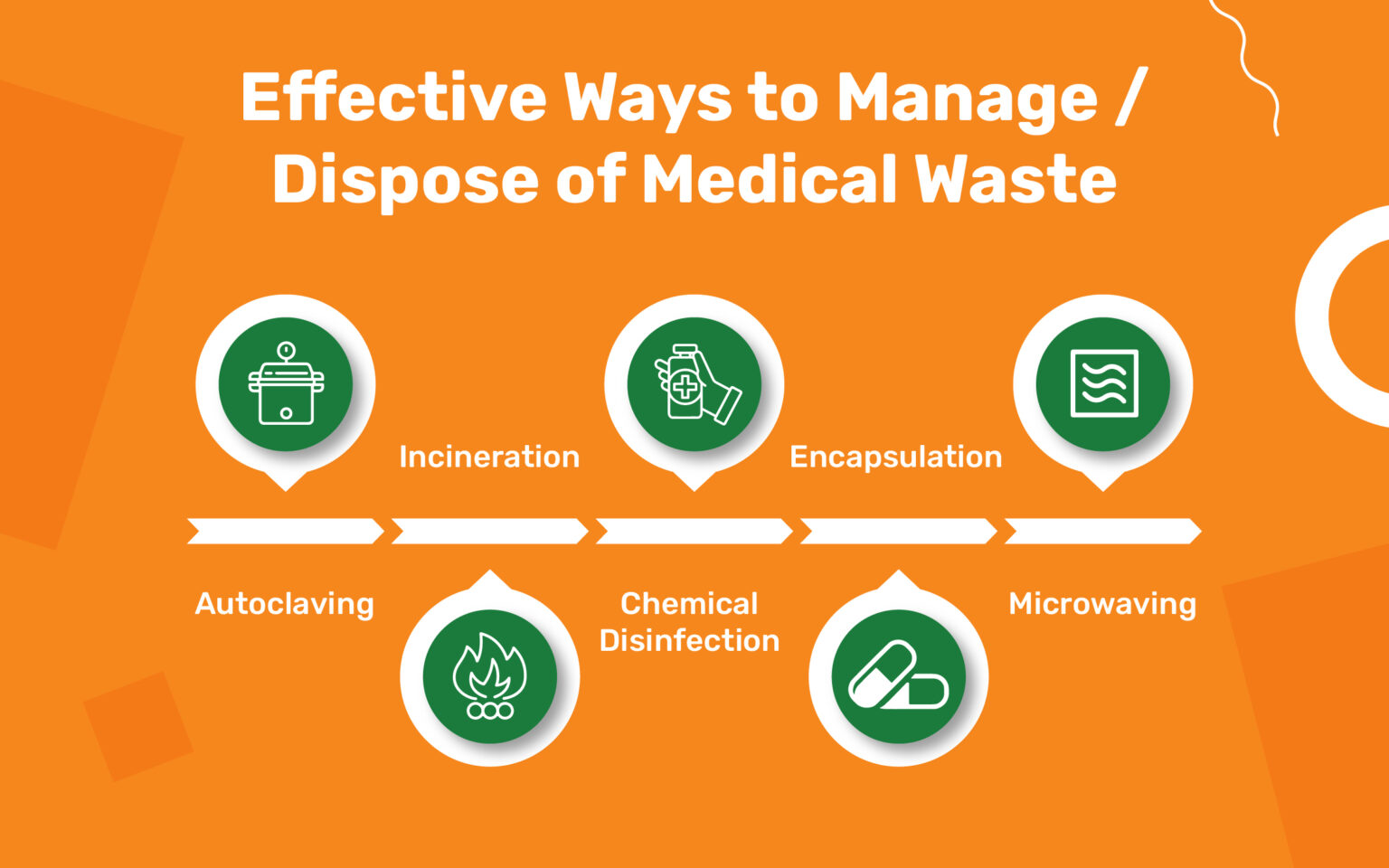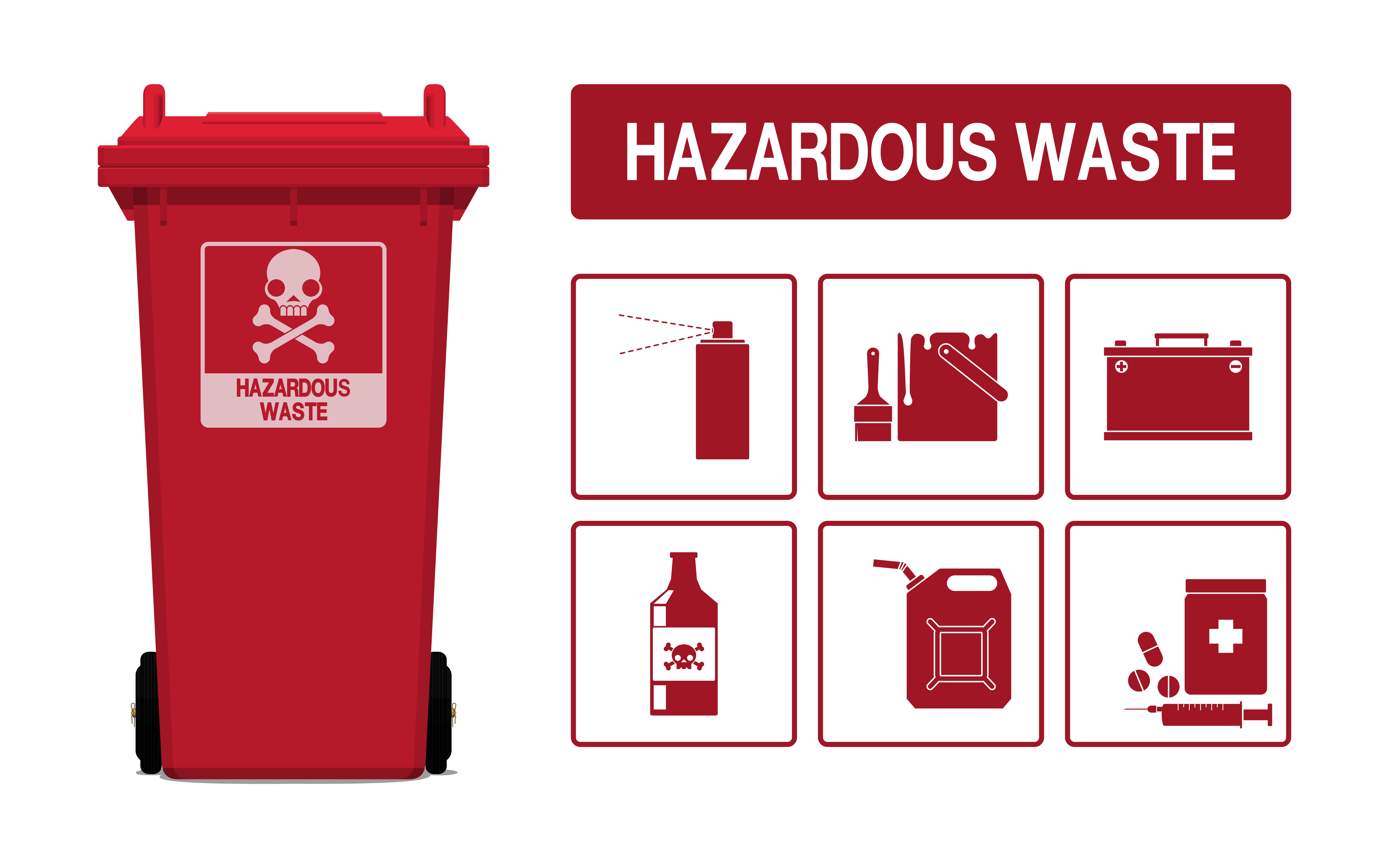Guardians of Sanitation: Citizen Medical Waste Removal Service for Your Assurance
Guardians of Sanitation: Citizen Medical Waste Removal Service for Your Assurance
Blog Article
Stay Ahead of Laws: Expert Suggestions on Medical Garbage Disposal
In a world where the medical care market is continuously developing, it is critical for medical centers to remain ahead of guidelines when it pertains to the correct disposal of medical waste. With stringent standards and regular governing adjustments, it can be challenging to browse the complexities of this process. However, with experienced suggestions, centers can make sure conformity and mitigate dangers related to improper waste disposal. From recognizing the different classifications of medical waste to carrying out the ideal collection and segregation methods, this discussion will provide actionable ideas and useful understandings to assist facilities stay ahead of laws in the ever-changing landscape of medical garbage disposal.
Recognizing Clinical Waste Categories
Recognizing clinical waste groups is crucial for appropriate disposal and monitoring in healthcare facilities. Clinical waste describes any kind of waste created by health care activities that may pose a hazard to public health or the environment. It is important to categorize clinical waste accurately to guarantee its risk-free handling, treatment, disposal, and transport.
There are several classifications of clinical waste that healthcare facilities require to be acquainted with. One of the most common categories include contagious waste, pathological waste, sharps waste, pharmaceutical waste, and chemical waste. Each group has specific guidelines and policies for its appropriate monitoring and disposal.
Infectious waste includes materials contaminated with blood or other physical liquids, such as handwear covers, gowns, and laboratory cultures. Pathological waste refers to human tissues, body organs, or body parts that need special delivery and disposal. Sharps waste includes utilized needles, syringes, and various other sharp things that can cause injury and transmit infections. Drug waste makes up ended, unused, or polluted medicines that need mindful handling and disposal. Chemical waste consists of solvents, anti-bacterials, and various other chemical materials used in healthcare facilities.
Remaining Up-To-Date With Regulatory Changes
Staying current with regulatory adjustments is vital for health care facilities to ensure conformity and proper administration of clinical waste disposal. medical waste removal. With regulations constantly advancing, it is necessary for health care centers to stay up-to-date to stay clear of charges, fines, and prospective harm to the environment and public wellness
To remain ahead of regulatory changes, medical care centers ought to develop a system for monitoring and monitoring updates. This can be done by signing up for regulatory e-newsletters, going to workshops and conferences, and proactively taking part in market organizations. Furthermore, facilities should mark an employee or group accountable for staying educated and distributing info to appropriate stakeholders.
Regular interaction with governing agencies is also vital. Medical care facilities ought to develop connections with local, state, and government agencies to ensure they understand any adjustments in guidelines that may affect their waste administration methods. This can be done with routine conferences, participation in public comment periods, and aggressive engagement with regulative firms.
Moreover, health care centers ought to take into consideration partnering with waste administration companies that focus on medical garbage disposal (medical waste disposal services with WasteX). These business are typically fluent in the most up to date policies and can offer support and assistance to make certain compliance
Executing Appropriate Collection and Segregation Techniques
To properly take care of medical waste disposal, health care facilities need to develop proper collection and segregation techniques in conformity with regulative standards. Carrying out these approaches guarantees the secure handling and disposal of possibly dangerous products, safeguards the setting, and lessens the risk of injuries and infections to medical care workers and the general public.
Correct collection and segregation methods entail making use of marked containers and identifying systems. Health care centers should offer plainly classified containers for various sorts of clinical waste, such as sharps, transmittable waste, pharmaceutical waste, and non-hazardous waste. These containers should be color-coded and plainly significant to prevent confusion and advertise very easy identification.
Additionally, medical care centers must train their team on the proper treatments for collecting and setting apart clinical waste. This includes enlightening them on the various sorts of waste, the ideal containers to utilize, and the value of following laws and guidelines. Regular training sessions and refresher course courses need to be carried out to guarantee that employee continue to be current on best practices.
Additionally, health care centers should establish a system for normal collection and disposal of medical waste. This may include partnering with accredited waste management firms that focus on clinical waste disposal. These firms will certainly ensure that the accumulated waste is delivered and thrown away in compliance with regulatory needs.
Choosing the Right Disposal Approaches

Incineration is one of one of the most typical and effective techniques for taking care of particular sorts of medical waste, such as pathological waste and sharps. It involves the regulated burning of waste at high temperatures, reducing it to ash. Nevertheless, incineration can launch dangerous pollutants into the air and add to air contamination.

Chemical treatment includes the usage of chemicals to disinfect and reduce the effects of the waste. Microwave therapy makes use of microwave energy to warmth and disinfect the waste.
Making Sure Conformity Through Paperwork and Training
After meticulously considering the suitable disposal techniques for medical waste, healthcare facilities must ensure conformity with regulations and decrease ecological influence by applying reliable documents and training treatments. This step is vital in preserving a sustainable and safe setting for both medical care employees and the basic public.

Training is similarly vital in ensuring conformity with regulations. Health care employees who manage clinical waste ought to obtain suitable training on waste partition, dealing with, and disposal procedures. This training needs to cover subjects such as the proper use individual safety tools, identification of different sorts of waste, and the correct disposal techniques for each and every waste category. By offering thorough training, medical care centers can empower their staff to make educated choices and minimize the risk of incorrect waste disposal.
Final Thought
In verdict, remaining ahead of page regulations in medical waste disposal is important for medical care centers. medical waste removal near me. Comprehending the different classifications of medical waste, staying upgraded with regulatory changes, applying appropriate collection and segregation approaches, selecting the suitable disposal methods, and making certain conformity with documentation and training are all essential actions. By complying with these guidelines, medical care organizations can efficiently dispose and take care of of clinical waste in a accountable and safe fashion
From comprehending the different groups of medical waste to executing the right collection and partition techniques, this conversation will give useful insights and workable ideas to assist facilities remain ahead of laws in the ever-changing landscape of clinical waste disposal. - medical waste disposal services with WasteX
The most typical groups include contagious waste, pathological waste, sharps waste, pharmaceutical waste, and chemical waste. Health care centers should provide clearly identified containers for different kinds of clinical waste, such as sharps, transmittable waste, pharmaceutical best site waste, and non-hazardous waste. Healthcare facilities must develop a comprehensive system to tape and track all aspects of clinical waste disposal, consisting of kinds of waste generated, quantities, and disposal methods used. Health care workers who deal with medical waste ought to receive suitable training on waste segregation, managing, and disposal procedures.
Report this page